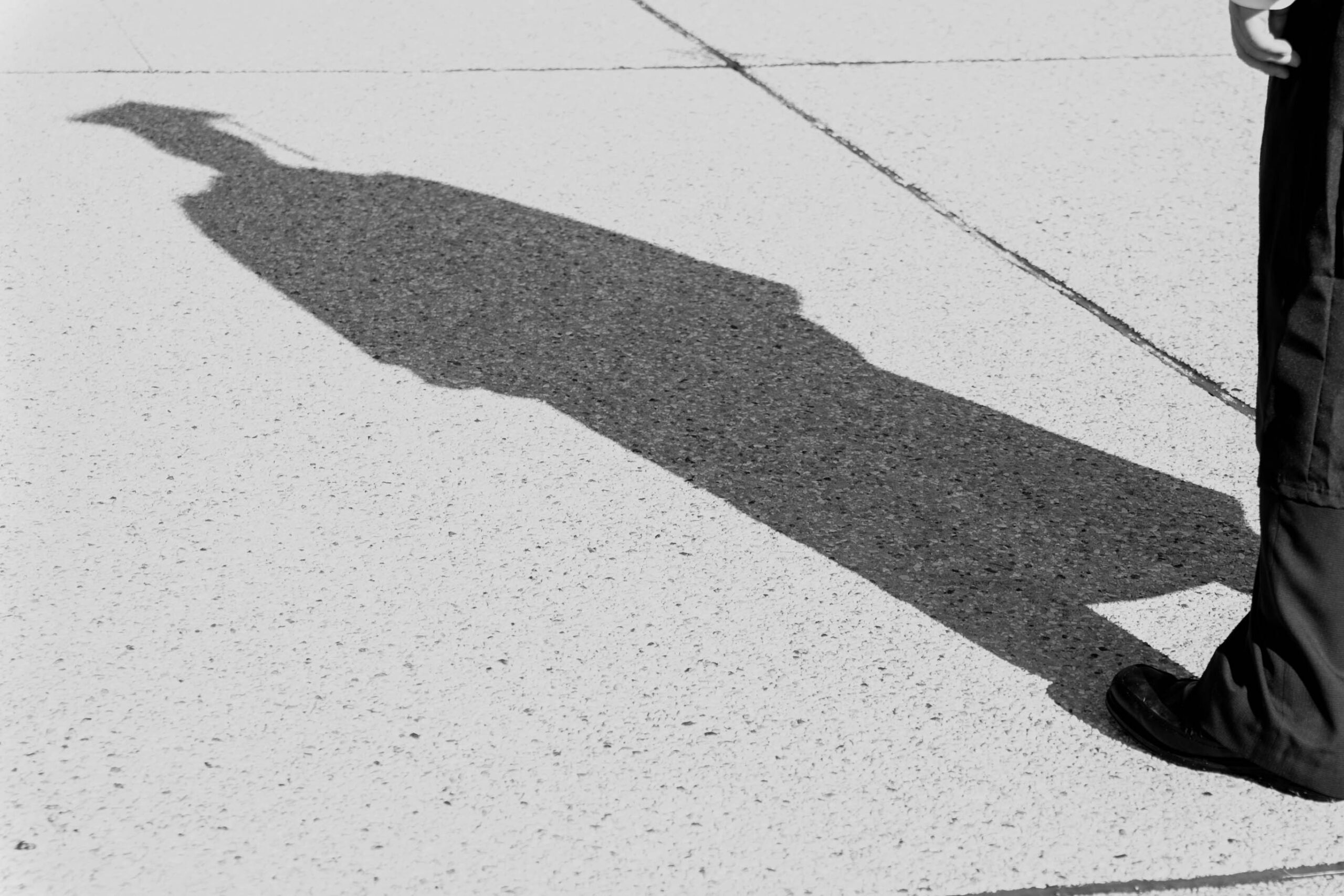Accountability
Avoiding Victimhood: A Lesson From Our Jewish Peers

More than six months have passed since the deadly attacks of Oct. 7, 2023. Yet it seems like every day I wake up to new reports of antisemitic conduct, particularly among America’s most elite young adults, Ivy League students. The latest has been a series of violent protests at Columbia and Yale where Jewish students were harassed and even attacked. At Penn, I have been reporting on the ground while protesters chanted “Israelis are pigs,” and “Al-Qassam make us proud, take another soldier down.” Our famous Ben Franklin statue was even vandalized with the KKK slur “Zios get fuckt.” How did the generation that prided itself on inclusive language, safe spaces, and affirming one another’s identities end up being so hostile toward Jews?
Progressives left their Jewish friends out in the cold
The story is multifold. It starts, of course, with Gen Z’s selective and shallow supposed tolerance. Ninety percent of Gen Zers expressed support for the Black Lives Matter movement, and less than 50% believe there are “just two genders,” statistics that would be lauded by progressives as surefire indicators of “tolerance.” However, this is paired with rapidly increasing rates of intolerance for people of different viewpoints among Gen Z.
None of this explains why Jews are exempt from this veil of tolerance. After all, they are a historically oppressed minority group. American Jews were crucial to the Civil Rights movement of the 1960s and supported gay marriage more than any other religious group. They also are the most reliable liberal voting coalition by faith, with 79% voting for Democratic candidates in the 2018 midterms. So why, then, did progressives not only refuse to rally behind those experiencing antisemitism but actively propagate it?
Jews are unused to playing the victim
Here’s the short answer: It is inconsistent with the Jewish heritage to play the victim. Against all odds, a small ethnic group has retained its faith, traditions, and family lines despite every type of persecution imaginable. Whether it was by the Romans, the Ottomans, the Nazis, or the Soviets, efforts to shun and eradicate Jews have been countless. Despite this unparalleled persecution, the more than 15 million Jews worldwide have not only survived but thrived. Twenty-five percent of American Jews report household incomes of more than 200,000 dollars, and over 80% across ages and denominations of Judaism express life and community satisfaction. Approximately 16% of Penn undergraduates are Jewish, a number which is a relative median across the Ivy League. For a group that makes up only 2.4% of the United States and that has been targeted with such ferocity in every generation, these numbers defy all odds.
Personal accountability in the Jewish lesson plan
In his article titled, “On Not Being a Victim,” Rabbi Jonathan Sacks writes about how Moses impresses personal accountability upon the Jews in the Book of Deuteronomy. He writes, “The choice, he says again and again, is yours alone: you as an individual, second person singular, and you as a people, second person plural. The result was that remarkably, Jews did not see themselves as victims.” As a Catholic, I was also brought up with this sense of personal accountability for my actions. It is through this, as Jews and Catholics both understand, that we can experience both real liberty and moral fulfillment. While this value was once universally understood by Americans it has now become counter-cultural. Therefore, it was second nature for me to see it targeted on Oct. 7th and grieve the attacks alongside my Jewish best friend, and advocate against antisemitism at Penn.
Fueled by this character, against all odds, Judaism and Zionism triumphed. A nation formed by repeated attempts at deadly ethnic cleansing over generations has gone on to thrive. Israel ranks highly on economic and educational measures of success and metrics of political and social freedom. Contrary to popular belief, Israel remains a highly tolerant and accepting place, a standout within the Middle East. It is therefore no surprise that the illiberal progressive ideologies that have captivated Gen Z would draw a target on the nation that refuses to be victimized as it remains strong and tolerant despite constant opposition.
A depressed generation turns to rage
While many pin the blame for this rise in antisemitism on the growth in “diversity, equity and inclusion” policies which center around dividing people into groups of “oppressor” and “oppressed,” this thesis seems to miss part of the story. Yes, this ideology has provided anti-Zionists with useful language like “colonizer” and “apartheid” to express their frustrations with the Jewish state. But people in leftist academic circles have launched these accusations at Jews and Israelis for decades. Why is it that now, among my generation, this virulent sentiment spreads like wildfire?
Though the viral Instagram graphic comparing Columbia’s student protests during Vietnam to those of late would suggest Gen Z is engaged in a storied tradition of student protest, our generation is different. As Abigail Shrier explains in her new best-selling book, Gen Z isn’t only hyper-polarized but also hyper-therapized. As “Bad Therapy” explains, we, and certainly the generation that will follow us, have been raised on “socio-emotional learning,” and “gentle” and “helicopter” parenting. We are shielded from personal accountability and hardship at every turn. After receiving participation awards instead of resiliency, it’s no surprise that belief in meritocracy and the American Dream is rapidly declining. The worst part? We are the most anxious, alienated, and depressed generation in history.
Jealousy and its bitter fruit
It should be unsurprising that antisemitism would take such a fierce hold among today’s youth. A worldview centered around tradition, community, success, and most importantly survival against all odds, represents everything this generation lacks. Judaism, Zionism, and the West as a whole are the perfect targets for their animus. But theirs is a different, more pervasive kind of progressive activism, fueled by jealousy. These are America’s best and brightest – filled with hatred and ripe for radicalization.
To be clear, peaceful protest is permissible and critique of Israel is not equivalent to antisemitism, but when protesters shout “intifada revolution” and “kill all the Jews,” we should take them seriously. More importantly, we should recognize what we can do better as a nation and a culture to prepare our young people to crave well-being rather than seek to destroy it.
This article was originally published by RealClearPolitics and made available via RealClearWire.
Lexi Boccuzzi is a contributor at Young Voices and a senior at the University of Pennsylvania. She has written about higher education, the media landscape, and Gen Z conservatism in The Daily Pennsylvanian and has just founded a new heterodox student publication, The Pennsylvania Postwhere she serves as Editor-in-Chief.
-

 Accountability4 days ago
Accountability4 days agoWaste of the Day: Principal Bought Lobster with School Funds
-

 Civilization1 day ago
Civilization1 day agoWhy Europe Shouldn’t Be Upset at Trump’s Venezuelan Actions
-

 Executive2 days ago
Executive2 days agoHow Relaxed COVID-Era Rules Fueled Minnesota’s Biggest Scam
-

 Constitution3 days ago
Constitution3 days agoTrump, Canada, and the Constitutional Problem Beneath the Bridge
-

 Christianity Today1 day ago
Christianity Today1 day agoSurprising Revival: Gen Z Men & Highly Educated Lead Return to Religion
-

 Civilization2 days ago
Civilization2 days agoThe End of Purple States and Competitive Districts
-

 Executive2 days ago
Executive2 days agoWaste of the Day: Can You Hear Me Now?
-

 Civilization5 days ago
Civilization5 days agoThe Conundrum of President Donald J. Trump












